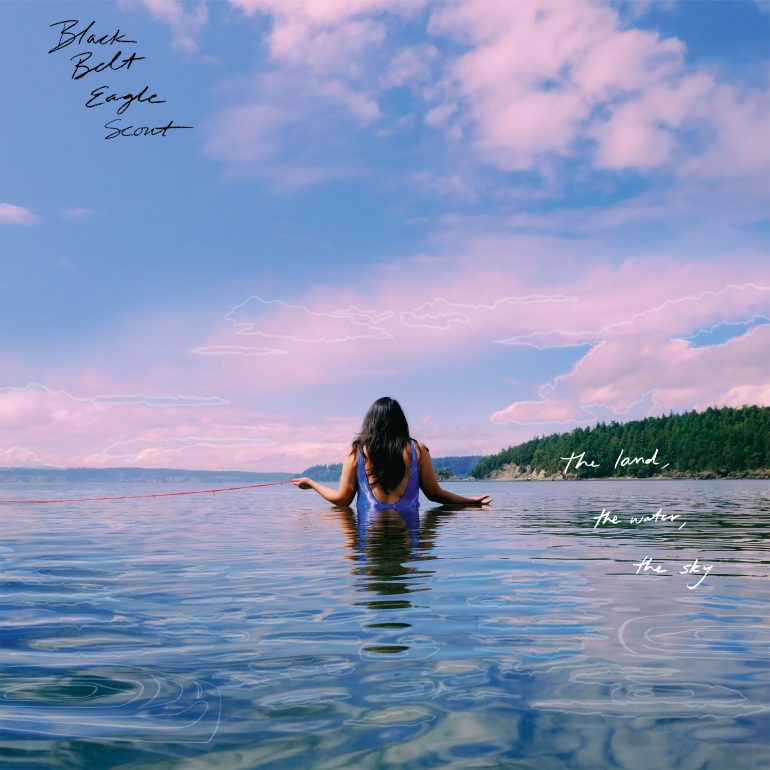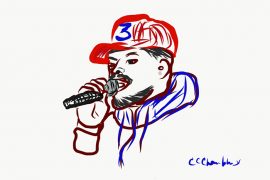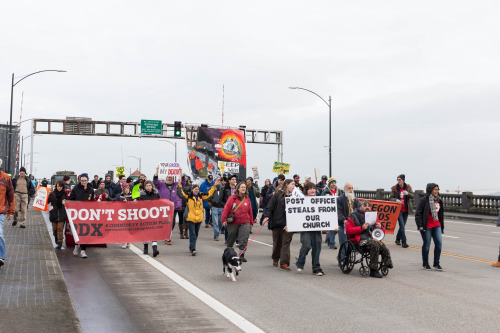With highs full of hope and healing and lows connected to mental health and the changing world, Katherine Paul (The sole songwriter for her project Black Belt Eagle Scout) explores an array of emotions in her newest album The Land, The Water, The Sky. Paul sees this album as her best work to date and is proud to bring forth songs deeply rooted in her heritage and her land as a Coast Salish native. It is set to release February 10th, 2023, with her opening show being the same night at the Aladdin Theater in Portland, Oregon.
As I listened to the three songs she had pre-released, the intensity of the emotions she described to me came through clearly. From the meaning and effort behind each song, to the driving rhythm guitar, and to the beautiful vocal harmonies, there is so much to love. In this interview, I had the privilege of talking with Katherine Paul about all this and more.
This interview has been edited for clarity.
John Watson: Talk about your upcoming album The Land, The Water, The Sky—what inspired you to write it?
Katherine Paul: Well it sort of just happened naturally. I had moved back home in July of 2020, during the very beginning of the pandemic. I moved back home to take care of my parents, and to be closer to where I grew up. I was initially going to have the album be an EP with me and my friend Takia (who plays in the band Divide and Dissolve). But then, as we approached the initial recording dates, we were just like “lets just make an album”.
I was very sad during the pandemic. Like a lot of people, I had all these plans that were the jumping off point for musicians that were mid-career, and I was going to do all these big things. That didn’t happen. So I was sad, and I didn’t really feel like doing anything. But here and there I would pick up the guitar and I had a lot of stuff. So it sort of just came naturally, and I knew I could make a record because I had been slowly working on things. It sort of morphed into this journey because I had been realizing that moving back home was a really good thing for me, and a grounding thing for me. I’ve definitely grown a lot, I’ve changed a lot, and I think that has a lot to do with this journey of returning home, and being a part of my community in a stronger way again.
JW: So with the pieces falling into place for the creation of this album, is there an overarching theme? Anything you’d like listeners to take away from this album?
KP: Yeah, I think that love and healing are big themes. There’s a lot of hope in the record, a lot of sad and dark parts in the record, but the arch of it slowly goes up into this beautiful serene place where it’s hopeful, it’s healing, and it’s strong. So I think that’s what I want people to take away from the record: there’s these feelings within sound that can be helpful, and I wanted to share this journey of healing with people. I also think that because we’ve had an interesting past couple of years, that healing is important and impactful for people right now too.
JW: To the sad and dark parts of the album you mentioned, where is that sadness rooted?
KP: I mean, I struggle with mental health, depression, and anxiety, and it’s just something that has always been a part of my life. So I think that it is sort of a base layer, but also with having the world change that is a big impact in it too. I guess the reality is that this record helped me realize that not giving up means the connection that I have to my homelands, that connection that I have to the land, the water, the sky, and what that does for me. How much it helps me spiritually, physically, and mentally. So that last song, “Don’t Give Up,” is a reminder that there are things here that are there for you—there are things here that are there for me. Whatever it is in the world, you can get through it.
JW: Compared to the lyrics of your first two albums, this upcoming album seems to touch more on your heritage. Why is there more of an expression of your history and culture on this album?
KP: I think it shows up more because it’s lifting me up right now. I think there’s a lot of my heritage here [in this album] because coming back home is a really big reminder of who I am, and a big reminder of where I come from. I’m just seeing these roots that come up through me, and just spring out of me. I think that has happened because, quite literally, one of the songs I was working on, I worked on it in the forest. I worked on it in nature, looking at things that are really meaningful to me. Nature is our ancestor, and a reminder of why this land is important to us. So yeah, there is a lot of my heritage—my true self—in this album.
JW: Going back to the beginning of the album, the first song seems darker than that of later songs like “Don’t Give Up.” What is the track “My Blood Runs Through This Land” about?
KP: Yeah, so I guess that it is kind of a more philosophical song. The song, specifically the lyrics, is about feeling.
One day we went to the beach, and I could just feel all of the surroundings. I could hear the water all around me, I could feel the rocks beneath me, you know, and it was this very real moment. I’m here, this is where I’m from, this is where my blood is, my ancestors are here, and they sat in probably this very same spot. Maybe doing the exact same that I was doing. It was this feeling that popped up of pain, but also beauty and importance that I tried to relay in the song. I guess if you were to put it into more of a literal sense, there’s feelings of historical trauma, but there’s also feelings of freedom too.
Some of the guitar lines in there, I wanted to make powerful and also erratic so that it feels like people running. I wanted the guitar lines to run, and I wanted them to emulate my ancestors running, like we’re running through this land—my blood that’s running here. On this beach right now, grounded by the water, the rocks, the driftwood. So I guess that’s sort of what the song is about.
JW: Is there anywhere else that you use your instrumentation and melodies to convey certain emotions?
KP: Yeah, there’s a track that’s going to come out soon that is called “Spaces,” and my parents sing on it. My dad’s background is singing powwow songs, and Coast Salish canoe songs, so he has a very powerful voice. That song is about feeling supported by people who want to talk to me, want to cheer me along, and want to be with me in the process of what I’m doing. It’s kind of like a thank you to all of that, and it’s also like a healing song too because I recognize that people have come up to me and said thank you for your music, you’ve helped me a lot, and I recognize there is this healing in there. It’s kind of this very grateful, thankful song, and when my dad comes in—various times when I listen back to it I’ll start crying, because he has such a beautiful and powerful voice. When he sings with his background, it’s more of a cultural and spiritual way, with powwow songs and canoe songs, and so his voice being on my indie-rock song, it hits you.
JW: This is your music, your album, and your songs. With that in mind, is there anything that you want the world to know that may not be evident upon its release?
KP: This is the best record I have ever made. I say that because the process I went by in making it was treating every song like it was going to be the single on the album. I gave it my all.
It took a long time to record. We were in the studio for six months, and within those six months it took about thirty days to complete the recording, the tracking, the mixing, and the mastering. So there was a lot of time and effort put into each song on this album. I’ve said it to a couple of people because I think it is important to note. I’m really proud of this album, and I think it shows a lot of growth in my songwriting, and I think it shows a lot of growth in my openness as a musician.
___
The Land, The Water, The Sky releases February 10th, 2023. Black Belt Eagle Scout opens her tour that night at the Aladdin Theater.





